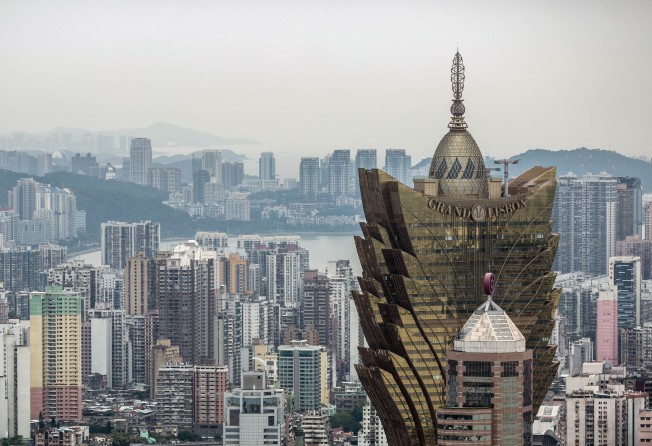Hong Kong-Macau-Zhuhai bridge will close property price gap between cities, say analysts
The bridge, scheduled to open later this year, will dramatically cut journey times and push up Macau house prices as Hong Kong’s start to cool, say experts

The opening of the Hong Kong-Zhuhai-Macau bridge later this year could further narrow the gap between Hong Kong and Macau house prices, both of which recently rose to an all-time high, according to property experts.
Raymond Kwok, associate director at Guo Du Real Estate, said that once vehicles start crossing the bridge the residential property market in Macau could experience growth of anywhere between 5 per cent and 10 per cent. Retail property prices could increase by 30 per cent to a half.
“If the traffic is there, we will likely see the growth in Macau property prices next year, or a month or two after the opening of the bridge,” said Kwok, whose agency handles about HK$30 million (US$3.8 million) in real-estate transactions annually in Macau, most of them commercial properties.
The opening of the bridge is expected to cut travel time from Hong Kong to either Zhuhai or Macau to 40 minutes, a lot shorter than the present 4.5 hours. The transport firm that won the exclusive rights to run shuttle buses across the bridge has said it will charge a fare of HK$80 between Hong Kong and Zhuhai, cheaper than the HK$220 ferry and HK$130 for coaches using other routes.
In the wake of the global financial crisis 10 years ago, average residential property prices in Macau bottomed out at HK$1,589 per square foot. The average in Hong Kong at around the same time was HK$4,464, about three times more expensive than Macau’s, data from Midland Realty showed.
The gap has closed dramatically in the intervening years, and is expected to get even smaller as Hong Kong’s market cools off and Macau’s benefits from the reduced crossing time.
In the first three months of this year, homes in Macau were changing hands for HK$10,433 per square foot, an all time-high but still about a quarter lower than Hong Kong’s HK$12,833 per square foot in the same period.
Median house prices in Hong Kong rose for a 27th consecutive month in July to HK$13,691 per square foot. But they were expected to moderate, owing to Chief Executive Carrie Lam’s new measures that include imposing a vacancy tax and allocating more land for affordable homes at a time when interest rates are starting to rise.
Data from Macau’s government showed that in the first three months of this year, 5,501 residential units were sold, well over a quarter of the 13,985 total units sold in the whole of 2017.
Kwok estimates that some 60 per cent of homebuyers in the casino hub are mainland Chinese, 30 per cent are Macau residents, and the rest are from Hong Kong, Korea, and Japan.
“Mainland Chinese investors would see buying a property in Macau as an investment. Some Koreans also go there for gambling, and so a Macau flat would be seen as a good investment,” he said.
Kerry Wong, CEO for Greater China at online property advertiser REA Group, said the bridge and the launch of the light rail system in the next couple of years will make the former Portuguese enclave more attractive to investors.
“The opening of the bridge will make commuting easier than ever, and it is expected the difference in property price between the two cities will become smaller,” said Wong.
In February, the Macau government introduced a new stamp duty of 5 per cent on second-home buyers, and 10 per cent on those buying their third unit or more. In Hong Kong, meanwhile, buyers of second homes are liable to pay 15 per cent in stamp duty and 30 per cent for non-permanent residents.